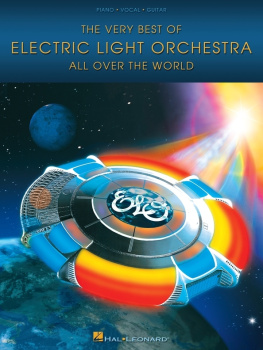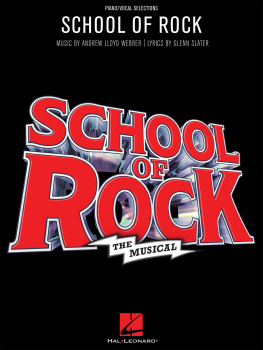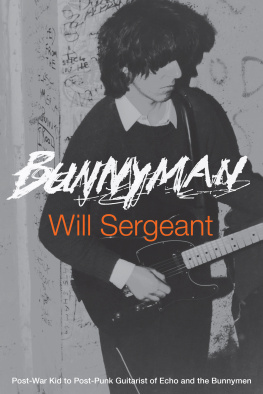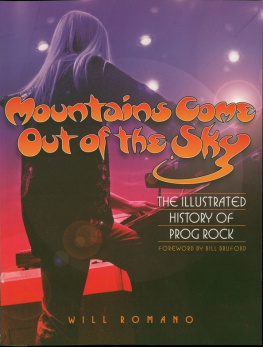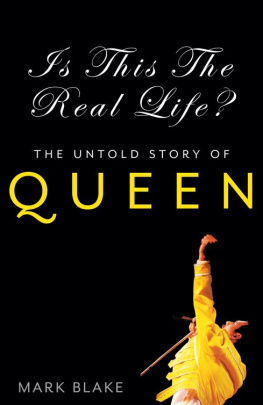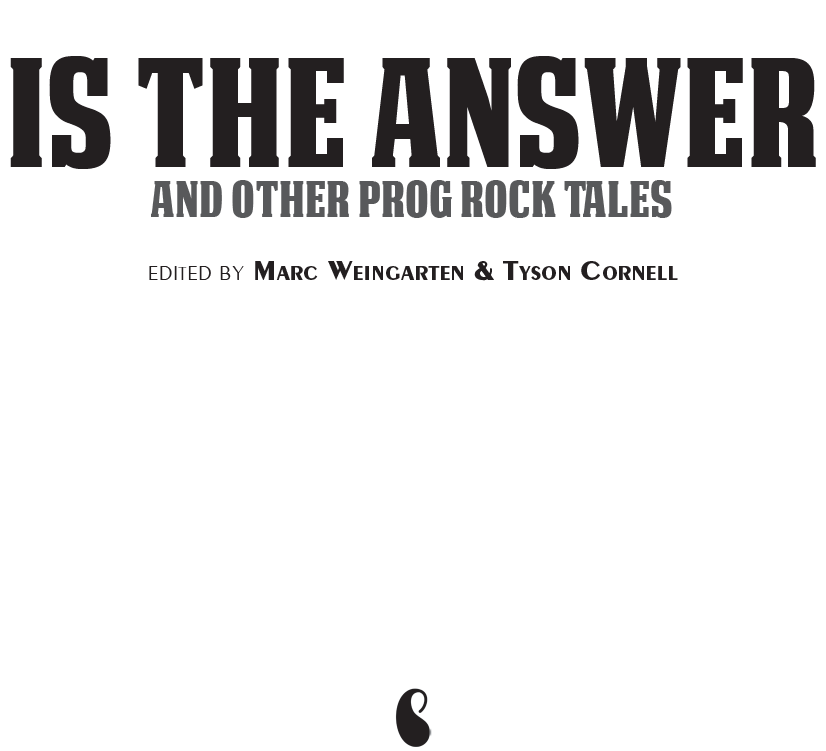This is a Genuine Barnacle Book

A Barnacle Book | Rare Bird Books
453 South Spring Street, Suite 531
Los Angeles, CA 90013
abarnaclebook.com
rarebirdbooks.com
Copyright 2013 by Marc Weingarten & Tyson Cornell
All rights reserved, including the right to reproduce this book or portions thereof in any form whatsoever, including but not limited to print, audio, and electronic. For more information, address: A Barnacle Book | Rare Bird Books Subsidiary Rights Department, 453 South Spring Street, Suite 531, Los Angeles, CA 90013.
Set in Goudy Old Style
Distributed in the U.S. by Publishers Group West
Interior illustrations by Alexandra Infante
Full spread illustration by Mattias Adolfsson
Publishers Cataloging-in-Publication data
Yes is the answer: and other prog rock tales / edited by Marc Weingarten and Tyson Cornell.
p. cm.
ISBN 9780988931282
1. Progressive rock musicHistory and criticism. 2. Rock musicHistory and criticism. 3. Rock musicAnalysis, appreciation. I. Weingarten, Marc. II. Cornell, Tyson. III. Title.
ML3534 .Y47 2013
781.66 dc23
For Absent Friends
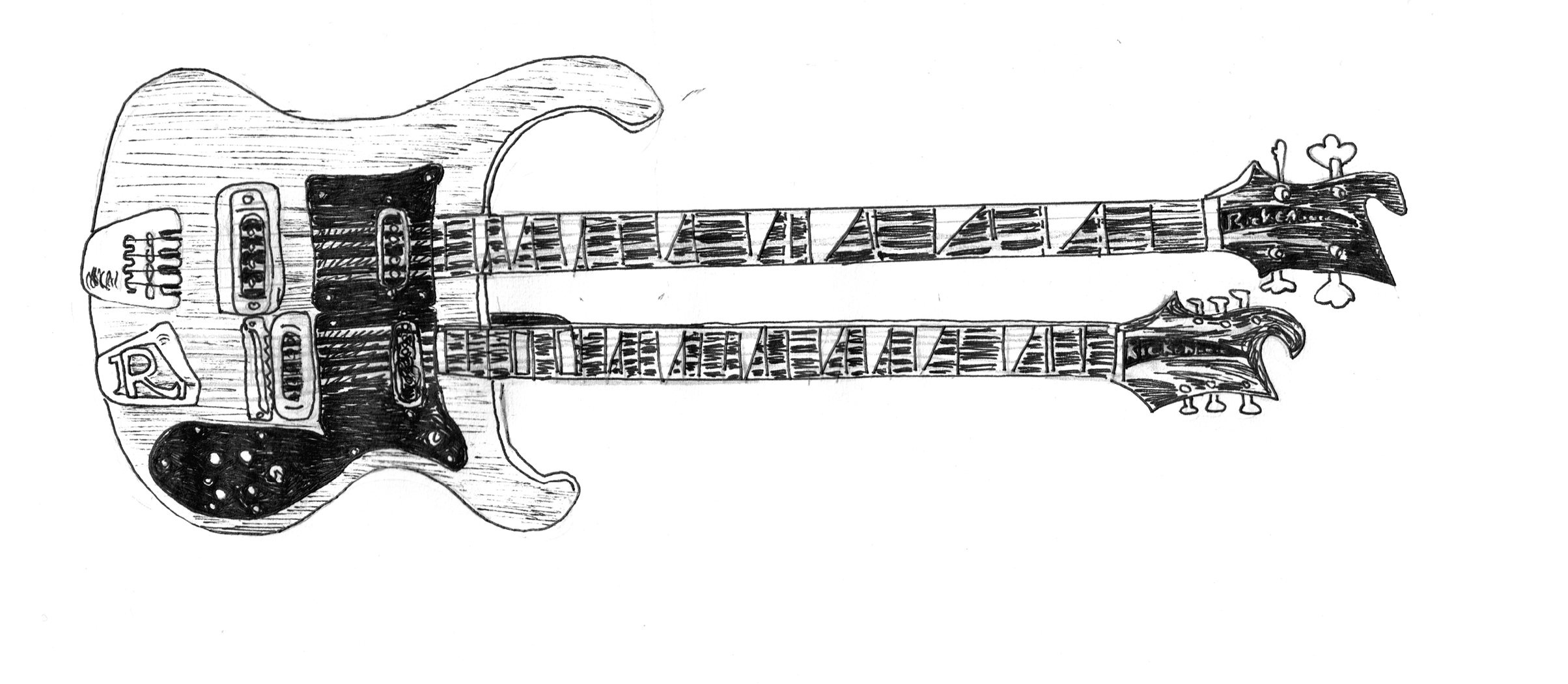
Projecting our images
in space and in time
Yes Is The Answer
Disclaimer: Some of the essays in this book are prolix, self-indulgent and meandering. These are essays about Prog Rock. This is as it should be.
Contents
Yes Is The Answer: An Introduction
T he haters werent all wrong, of course. Prog was ridiculous. But never underestimate a young boys finely honed sense of irony. We loved some of this stuff precisely because it was overblown. Its kind of like when Evel Knievel jumped over thirty carsyou mean, he did that ? We would laugh at some passages, marvel at othersit was all part of the ongoing conversation about Prog.
And yes, it was pretentious. Thats why we liked Prog Rock; it strived for something beyond what we were hearing on AM radio. We didnt give a damn about rocks first principles, all that three chords and the truth business; give us Prog Rocks grandeur, its mushy mysticism, its blissed-out mystery. When youre a certain kind of cloistered fifteen year old male, youre looking for music to lay out an alternative universe much the same way that Tolkien, weed, and comic books did. Prog delivered the goods like nothing else. At least for me.
I didnt care much for comics. I had Prog musicians with their codpieces, their Mylar capes, and white leather boots. They were superheroes, and their talent infused them with special powers. When youre a young boy looking up at a man with flowing blond hair negotiating a groaning bank of very complicated circuitry, its like youve come face to face with some kind of earthly God. Or Thor with a Moog.
Prog was most certainly not monolithic. Yess cosmic Technicolor Dream was not even in the same area code as King Crimsons dark, distorted vision. And dont even get me started on Genesis, a band whose eccentricity and Ambrose Bierce-ian worldview made them every bit as weird as Captain Beefheart.
Prog was indulgent, sure, but it wasnt aimless noodling. That was Jazz Fusion, which ditched good songwriting for chops, man. Jazz Fusion fans were douchebags, anyway, the kind of kids that grokked on instrumental gear and got hard-ons during their long Saturday afternoons in guitar shops, ogling over Ovation doublenecks. We were deep into the music, the gestalt of it. Who cares if the lyrics were terrible? I was more of a formalist in those days. It was about the way Prog washed over you, opened an aperture to a new headspace you had never inhabited before.
Prog Rock fans were a select tribe of fellow travelers, and we were defensive about cultural Jihadists who had besmirched our beloved music with that Fusion tar brush. Besides, most enemies of Prog didnt really listen to it. We were protective of our music, because it was ours . The uninitiated didnt get Prog, so we clung ever tighter to it.
Reading the essays in this book, you will be prone to believe that Prog Rock was exclusively for the young, and fixed in a specific cultural moment: the post- Sgt. Pepper , pre-Punk seventies. Which is true. And for many of our contributors, Prog was a passing fancy. Even some of its greatest practitioners have given it up, as evidenced by the fact that King Crimsons Robert Fripp and Bill Bruford have both retired from public performance. But no one among us here has forsaken the thrills that Prog Rock has given us and continues to give us: that transportive frisson as we stared intently at Roger Deans sci-fi landscapes while grooving to Astral Traveler.
If you have this book in your hands, surely youve been there, too.
Marc Weingarten, March 2013
Here Comes The Knife
by Seth Greenland
This will be our reply to violence: to make music more intensely, more beautifully, more devotedly than ever before.
Leonard Bernstein
T he dagger flashed in a streak of white light before plunging toward its target. Silver rings on the assailants tapered fingers. A thin wrist extruding through a frilly cuff. Two thousand rapt witnesses. The point of the blade thrust between the E and the F keys and the notes continued to drone through the old theater. My friends and I were seated in the fourth row of the Fillmore East in New York and Keith Emerson had just stabbed his Hammond organ like some kind of rock and roll Jack the Ripper. My twelve year old eyes shot out of my head like they were on springs. Because we were kids and not old enough to attend a satanic rite like this on our own, my parents had brought us, and now their mouths were agape in scandalized suburban astonishment. Keith Emerson of the mod clothes, Prince Valiant haircut, and unthreatening leading man looks was a murderous dandy! What kind of lunacy were my parents exposing their charges to? We were witnessing the wild birth pangs of a genre.
Emerson, Lake & Palmer were still in the future. This was The Nice, a virtuoso English Prog trionot that we had heard the word Prog and they were my favorite band in the world. Consisting of Emerson, bassist Lee Jackson, and drummer Brian Davison, they had just sacked their guitarist Davy OList and were touring as a trio to support their first album, Thoughts of Emerlist Davjack . They were opening for Ten Years After, a band led by the manic-fingered British guitarist Alvin Lee that played a steroidal version of Chicago blues. Ten Years After sounded like Muddy Waters on a three-day meth binge. The Nice didnt sound like anything we had ever heard. They were our kind of band.
First, some context: This was before Prog grew bloviated and pretentious, before the elves and faeries (Faeries? Are you locked in an Andrew Marvell poem? Its f-a-i-r-i-e-s!) took over. Before it became what Sp n al Tap so nimbly skewered. This is back when Prog first arrived and hit rock fansfew of whom were familiar with composers like Stockhausen or John Cagethe way Stravinskys Le Sacre du Printemps gobsmacked that classical audience in 1913. The early Prog practitioners cast a spell similar to that of the Romantic poets a century before Stravinskys provocation. Like Keats and Shelley, they were young artists who wanted to upend bourgeois expectations by reimagining classical forms. This was not something our seventh grade brains were capable of articulating, but we were fascinated by the new sounds, the lyrics that accompanied them, and the wholly original sonic world Prog rockers were creating, a reimagining of Beethoven and his ilk in a way that made those bewigged worthies somehow relevant in a post-Beatles world.


